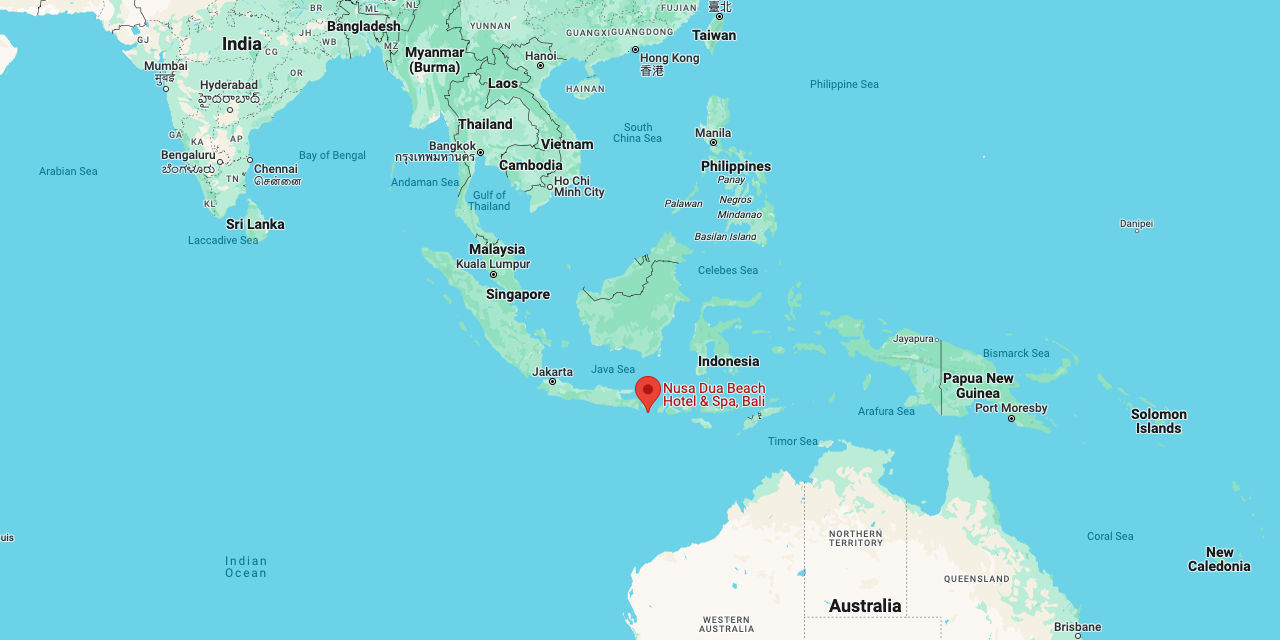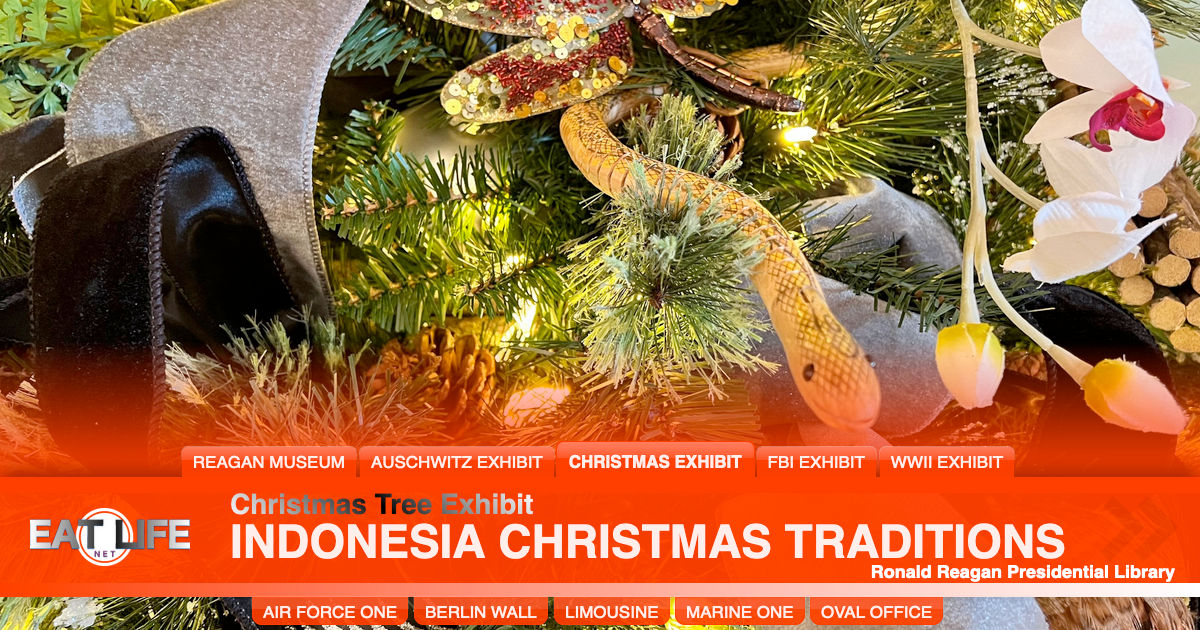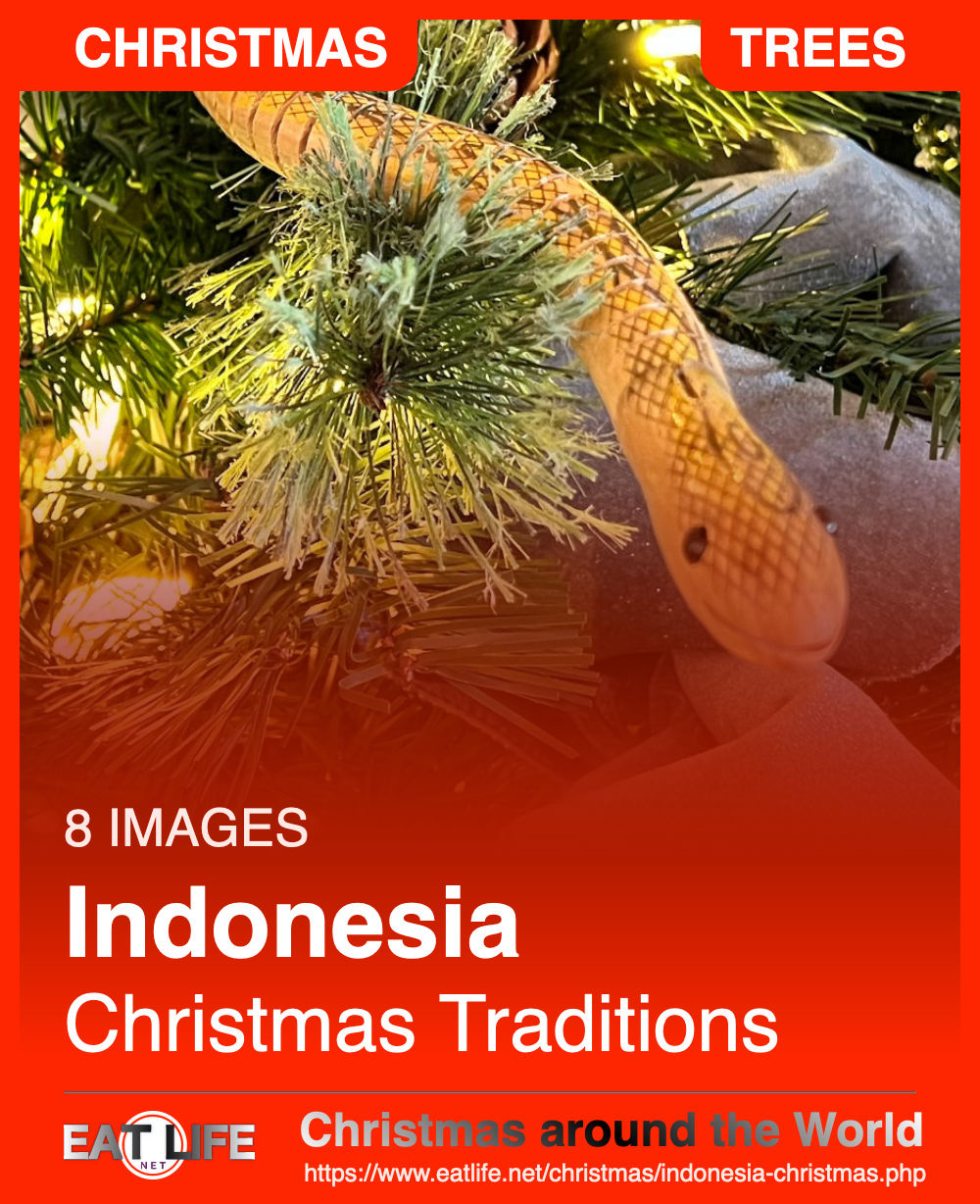INDONESIAN CHRISTMAS

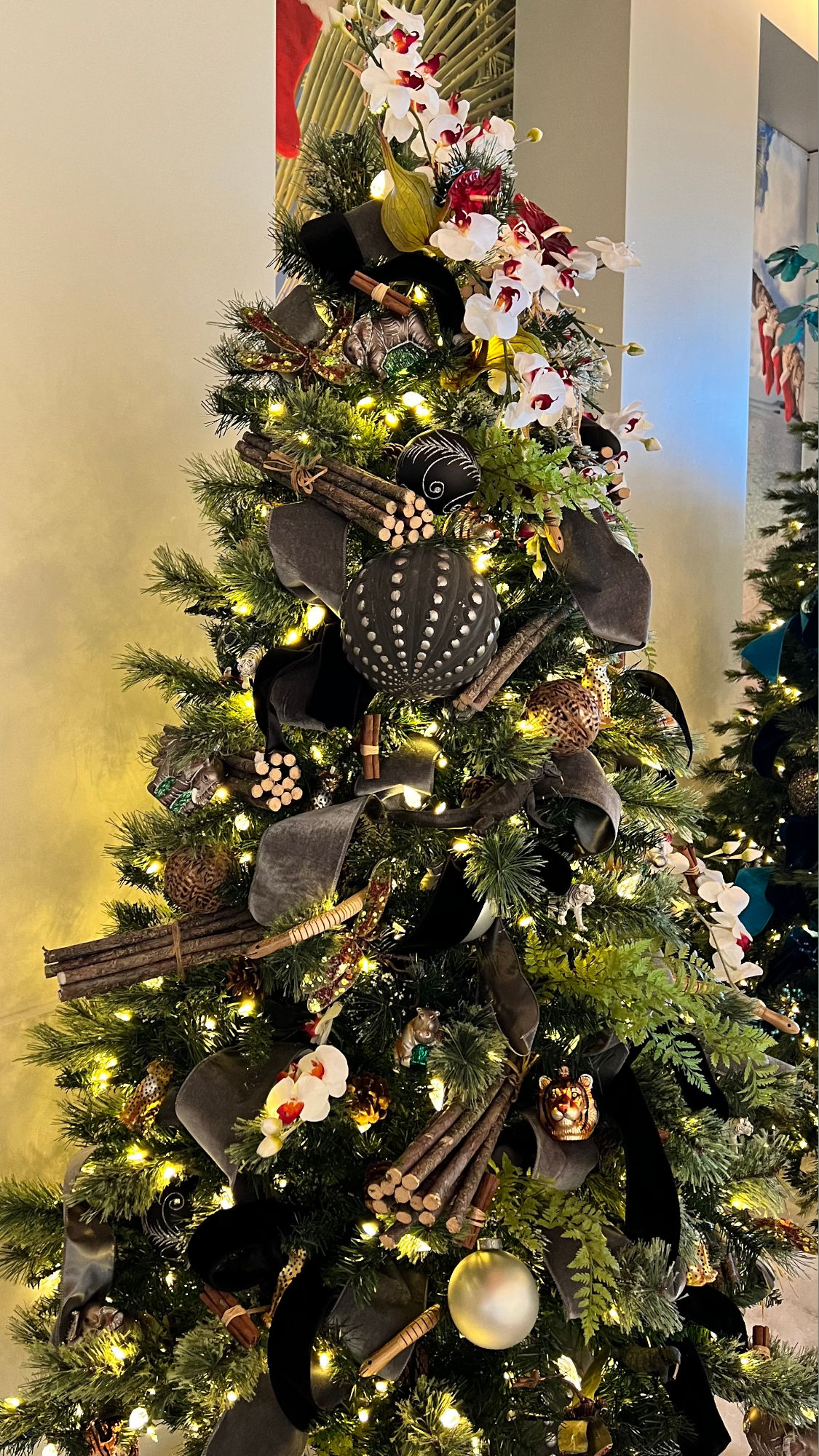
| HOW TO SAY MERRY CHRISTMAS: | |
|---|---|
| In Indonesian | Selamat Natal |
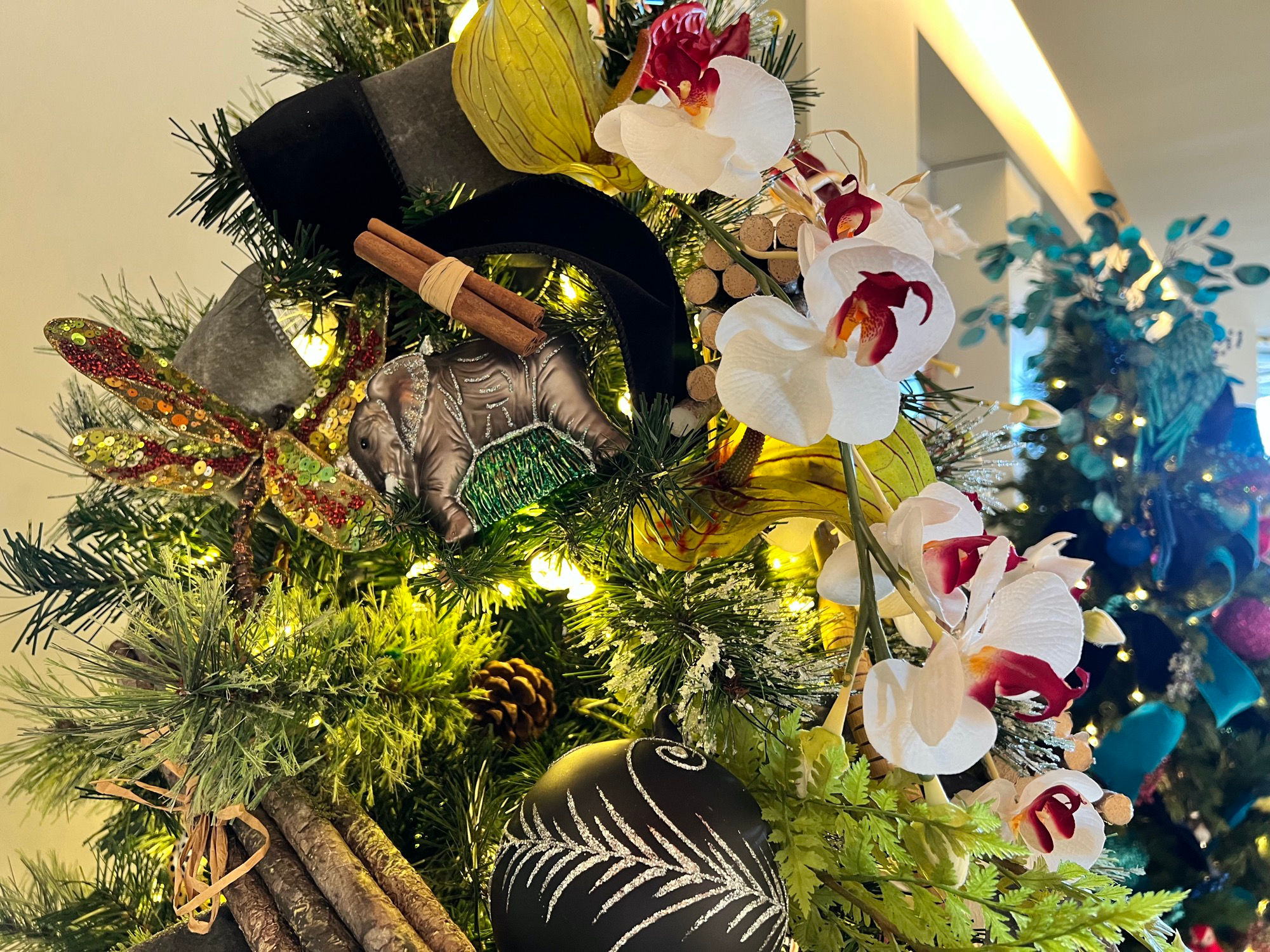

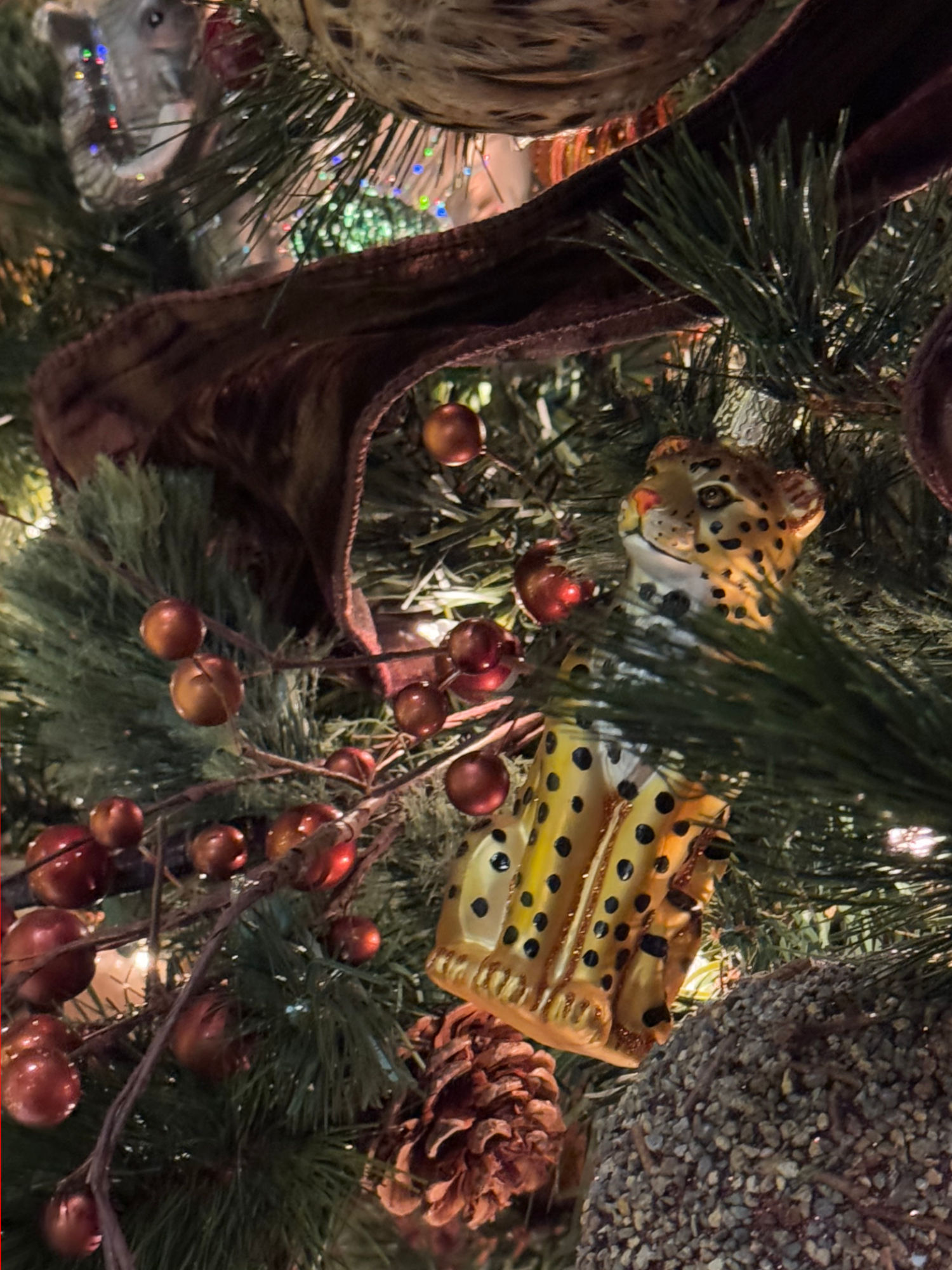
WHYCHRISTMAS.COMChristmas in Indonesia
Although most people in Indonesia (about 85%) are Muslims, about 10% of the population are Christians - that's still about 20 million people! Indonesian Christians love to celebrate Christmas!
- Indonesian Christians usually go to church services on Christmas Eve and Christmas Day. In most churches and cathedrals, people create nativity scenes and use them as part of the Nativity drama performance.
- Christmas trees in Indonesia are normally artificial ones made of plastic. Although less common, some people have real Pine trees to be decorated as Christmas trees. The biggest producer of 'real' trees is located in Puncak, West Java. Another special type of Christmas tree are ones made from chicken feathers - made by people in their homes on Bali island. These feather trees have been exported to different countries around the world.
- In early December, huge Christmas trees with beautiful and colorful decorations can be found in most shopping malls in big cities all over the country. In 2011 there was also a huge Christmas tree made of edible chocolate, created by professional Indonesian chocolatiers!
- Popular Christmas carols in Indonesia include 'Malam Kudus' (an Indonesian version of 'O Holy Night') and 'Malam Kudus' (an Indonesian version of 'Silent Night'). These songs are usually sung on Christmas Eve in churches by a choir during the candle-light service, when people think about the Christmas story.
- Most Indonesian television channels broadcast Christmas themed musical concerts. An annual Christmas celebration event, held by the Indonesian Government, is always broadcast by the state-owned television channel 'TVRI'. The most popular Hollywood movies broadcasted in Indonesian during Christmas are the Home Alone series!
- In Indonesia, Santa Claus is also very popular and is called 'Sinterklass' (that's because Indonesia used to be ruled by The Netherlands). Sinterklass brings presents to children on Christmas Day - and you also might see him in shopping malls, etc.! Exchanging presents is common among Christians in Indonesia.
- Cookies are a must-have food during Christmas in Indonesia. Some popular types of cookies include 'Nastar' a butter cookie with pineapple jam filling, cheese cookies called 'Kastengel' and 'Putri Salju' or 'Snow White' cookies, a butter cookie covered with powdered sugar and cheese!
In Indonesia, Merry Christmas is Selamat Natal


CULTURE TRIPChristmas in Bali
If you're dreaming of a bright Christmas instead of white, if you're ready to exchange snow for sands and sunshine, Bali could be your Christmas paradise. Despite being predominantly Hindu, Christmas has become one of the most festive and touristy occasions in Bali. From shopping to charity, discover how to spend the holiday season in Bali.Go Shopping
No matter how you feel about Christmas shopping, shopping in Bali is going to be a blast. First, there's the abundance of great stuff, both imported and locally made. There's something for everyone, every taste, every budget. From upscale concept stores along the streets of Seminyak to authentic handmade crafts at Sukawati Art Market, the only struggle will be deciding what to buy from the myriad of options. But then, there's the relatively lower price tags, so you might as well just take them all.Indulge in a Christmas Feast
It's okay to yearn for familiar the Christmas menu while away from home -turkey, mashed potatoes, pumpkin pie, or any of your usuals. Many restaurants offer Western package deals for Christmas dinner, lunch, even brunch. Jemme has one of the most-sought roasts especially during the holiday season, while Bali Beach Shack is popular for its scrumptious Christmas buffet. If you fancy Balinese-style festive meals, try the famed Roasted Balinese Duck Breast and fresh seafood meals at La Lucciola. Be sure to make a reservation!Party!
There's really no bad time to party in Bali, but if you need an excuse to go crazy, Christmas is a really good one. Venues are trying to top each other to throw the liveliest party on the island, and that rivalry leaves tourists with a wide selection of great events and promotions. Embracing the opportunity is just good sense, right? (Keep telling yourself that). From music to cocktails, every place on every corner will most likely have a Christmas special.Get on the Yoga Mat
If you think you've spent too many special occasions partying and looking to do something more mindful, productive and spiritual this year, try a special Christmas yoga retreat. Yes, it's a thing. Skip the loud music and alcohol for a calming meditation and chakra healing for a refreshed, revitalized mind and body to welcome the new year. Kookaburra Yoga in Ubud offers a week-long pre-Christmas yoga retreat with a great balance of yoga practices, meditation, breath-work, and traditional healing.Be Generous
Embrace the spirit of the holiday season by sharing with the local community. There are plenty of foundations that will be more than happy to channel your blessings to those in need. You can also sign up for charity concerts, dinners or bazaars to help causes you care about. You can also spread joy by spending the holiday week volunteering.Watch Fireworks on the Beach
No, it's not New Year's arriving early. Indonesians love lighting up the sky with fireworks for any special occasion -New Year's, Christmas, Eid al-Fitr, Chinese New Year, Independence Day and more. As the sun goes down, the fireworks shoot off to the sky, illuminating the happy faces in the crowd. If you choose one of the west-facing beaches like Kuta or Canggu, you can start the celebrations early with a magnificent sunset while securing the best spot to stay for the fireworks show.Laze the Day Away
One of Bali's most coveted highlights is the stunning but affordable accommodations. Think beachfront private bungalows, villas with private pools, clifftop resorts for well below $100 -and with Christmas come the package deals you simply can't resist. Relax and unwind the whole year's tensions away while enjoying the tropical sunshine and magnificent views. Even if you're staying in for Christmas, getting into the holiday mood will still be easy, just join the in-house events, admire the festive decorations and gather for a big meal with friends or family.


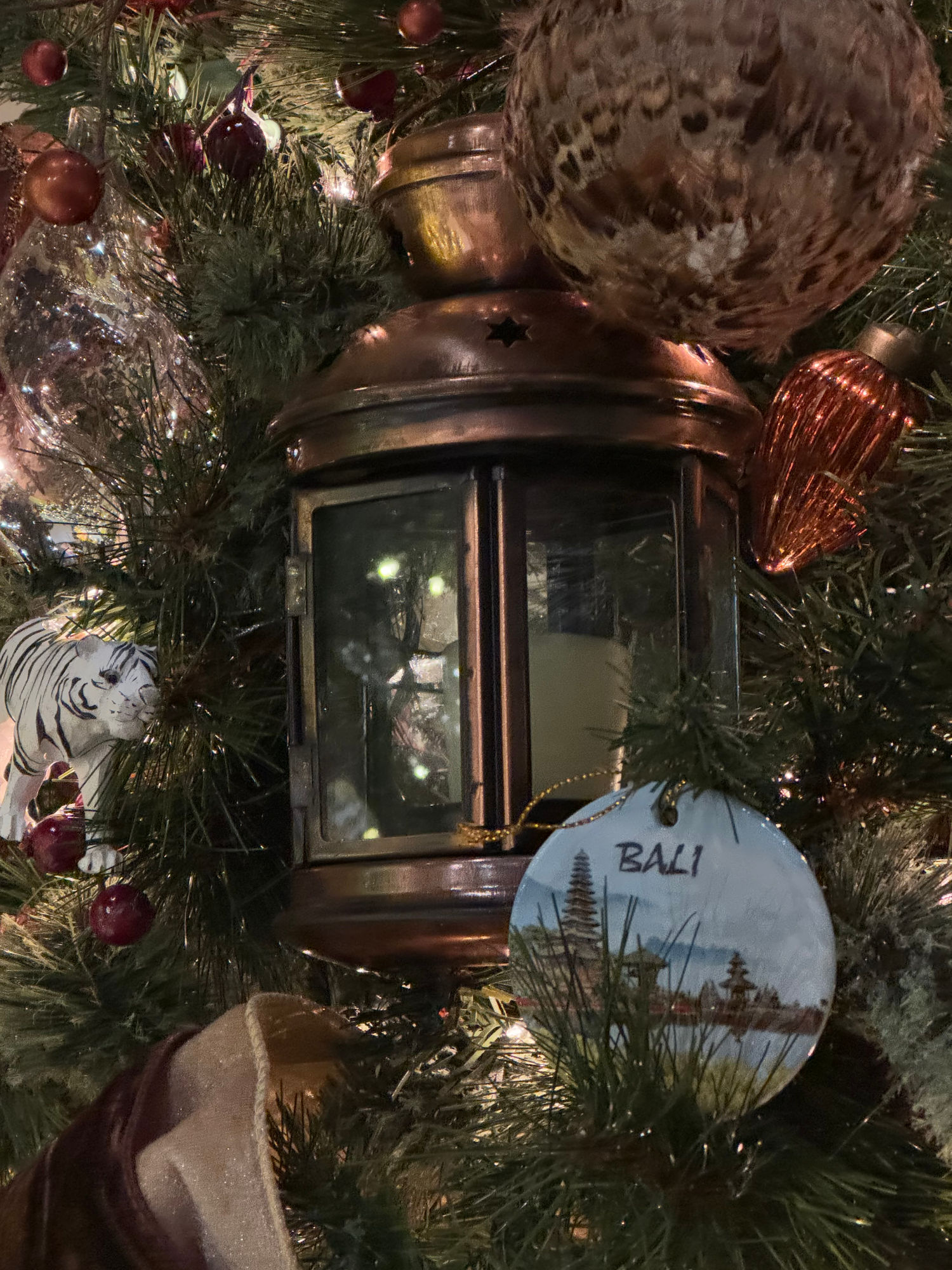
WIKIPEDIANatal
In regions with a Christian majority, both Protestants and Catholics celebrate Christmas with ceremonies and local food. In big cities, shopping centers are decorated with plastic Christmas trees and Santa Claus figures (locally known as Sinterklas, derived from the Dutch word Sinterklaas). Many local television channels broadcast Christmas musical concerts, and the government organizes the annual national Christmas celebration. In addition to traditional foods, there are also unique Christmas Day foods, such as traditional desserts like nastar (pineapple tart) and kastengel (from Dutch word kaasstengel), or 'putri salju'.Indonesia has approximately 28 million Christians, of which about 70% are Protestant and 30% are Roman Catholics.
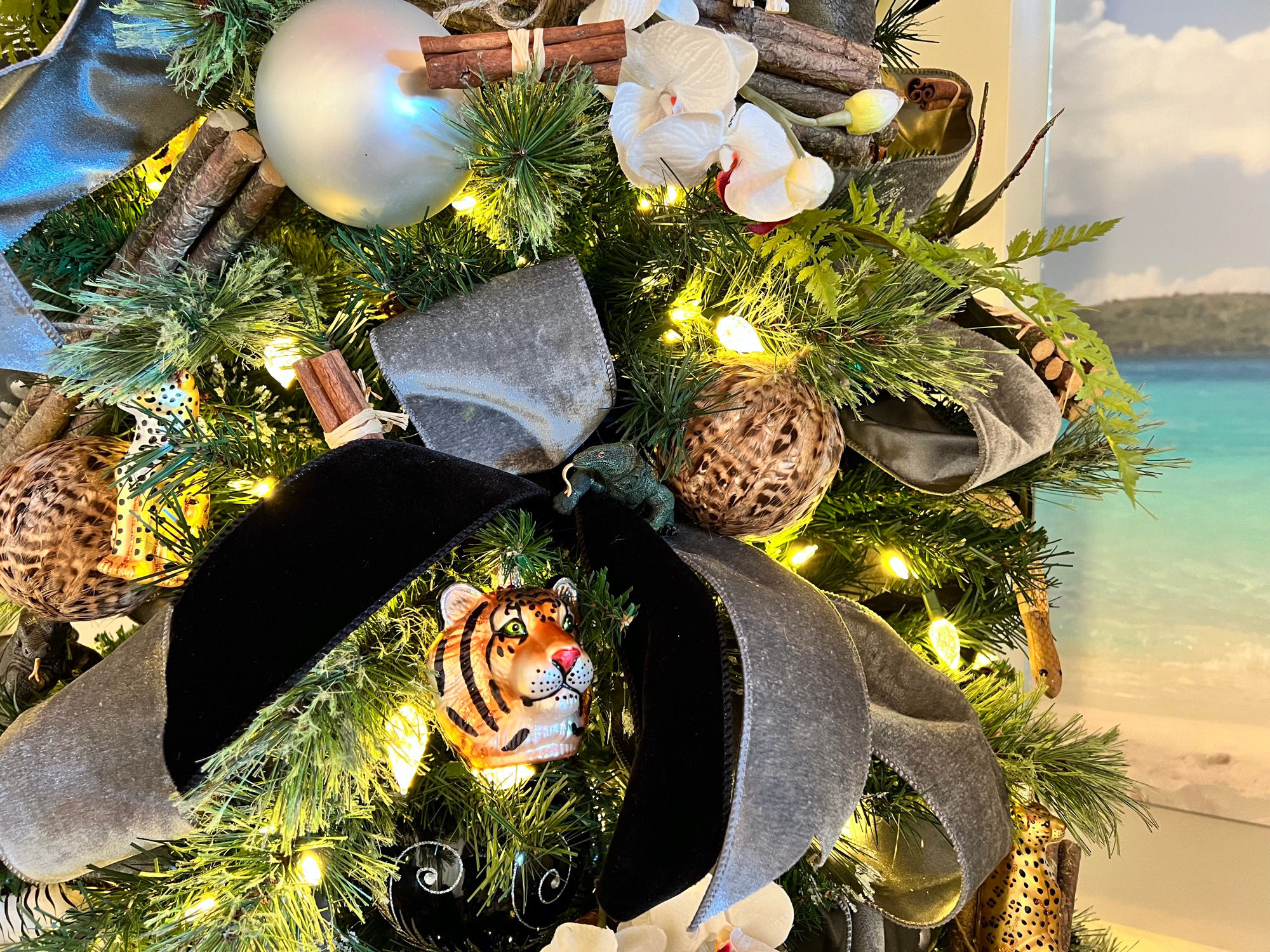

Reddit r/indoseiaChristmas in Indonesia
I have got some questions for Indonesians(Christians and Muslims).Christmas in Indonesia is secular or religious holiday?I mean that I know that Christmas and Easter are national holidays in Indonesia like Ramadan but Muslims Indonesians celebrate Christmas or only Christians celebrate this?Christians in Indonesia have got good or bad opinion for secular west type Christmas?They believe that this is only religious holiday or not?Indonesian Christians see Christmas more than religious or secular holiday?
- It really depends on who you ask, and where
I know some places that both religion celebrates. Something like "hey, I'm holding this christmas party, do you want to join? and everyone could come, meanwhile ada juga yang cuman family thing. But I think that's a bit like a minority places that does it.
I know some of my old school teachers celebrate christmas with the neighbors (as an added context, I went to a Christian Private School), but I also know some that just celebrates in the church or just at their house eating dinner with the family (a'la secular west type I guess). I personally just go to a family's house that does celebrate christmas and eat there while catching up with some of my cousins and family members. There's occasion that me and my parents would visit my parent's friends that celebrate christmas if we really don't have anything to do at that time.
Some office also throw parties, I believe. Not really sure...
As for the "holiday" itself, it's basically a bit like Ramadhan/Lebaran, it's a national holiday but it's just a religious holiday.
- Christmas in Indonesia is a largely religious holiday. The only non-Christians that celebrate it are non-Christians who are married to Christians, I don't think Christians in Indonesian think too much of how the West celebrates it.
How Indonesians celebrate Christmas varies with regions in Indonesia. Some of Indonesians celebrate a more Westernized Christmas, others more local, while others celebrate it in the Dutch format (ie the Spice Islands), meaning they celebrate St. Nicholas Day on Dec 5. I thin Dec 5 in the Spice Islands is as secular as you can get, but its only a small part of Indonesia.
- On their own, most non-Christian don't celebrate Christmas. On the other hand, except the hardliners, most don't have a problem decorating their shops with Christmas ornaments (ranging from secular santa/snowman to nativity scene), working with Santa suit with Indonesian/English Christmas song playing in the background (mostly secular songs sung by secular artist), or coming to their family/close friend for . Some of the Christians themselves celebrate Christmas in serene service, other went to secular Christmas concert, then there are some who have popular artist singing in the church.
In mixed-religion areas, it's common to held Christmas celebration as secular event ("oh this gift exchange party while wearing red in December is totally secular") to be inclusive. TV channels will play movies with Christmas settings (Die Hard, Home Alone, special Christmas episode of popular series). Shopping mall & amusement parks will have snow-themed decoration. So it's actually hard to celebrate the holiday purely as religious one.
- It's a religious holiday. That's why the Indonesian Ulema Association always remind Muslim Indonesians not to say 'Merry Christmas' to their Christian friends every year (which most Muslim Indonesians who can think for themselves always ignore). It has become like a Christmas tradition on its own lol.
Most Muslim Indonesians do not celebrate it, but since it's a national holiday, they also enjoy the fact that they don't have to work (except in places which still open on Christmas - but they're volunteer-based). Many of them also benefit from the Christmas discounts/sales from various shops. The Muslim Indonesians who do celebrate Christmas usually celebrate because they have family members who are Christians, but even then they don't attend the mass in churches, only celebrate at home with good food.
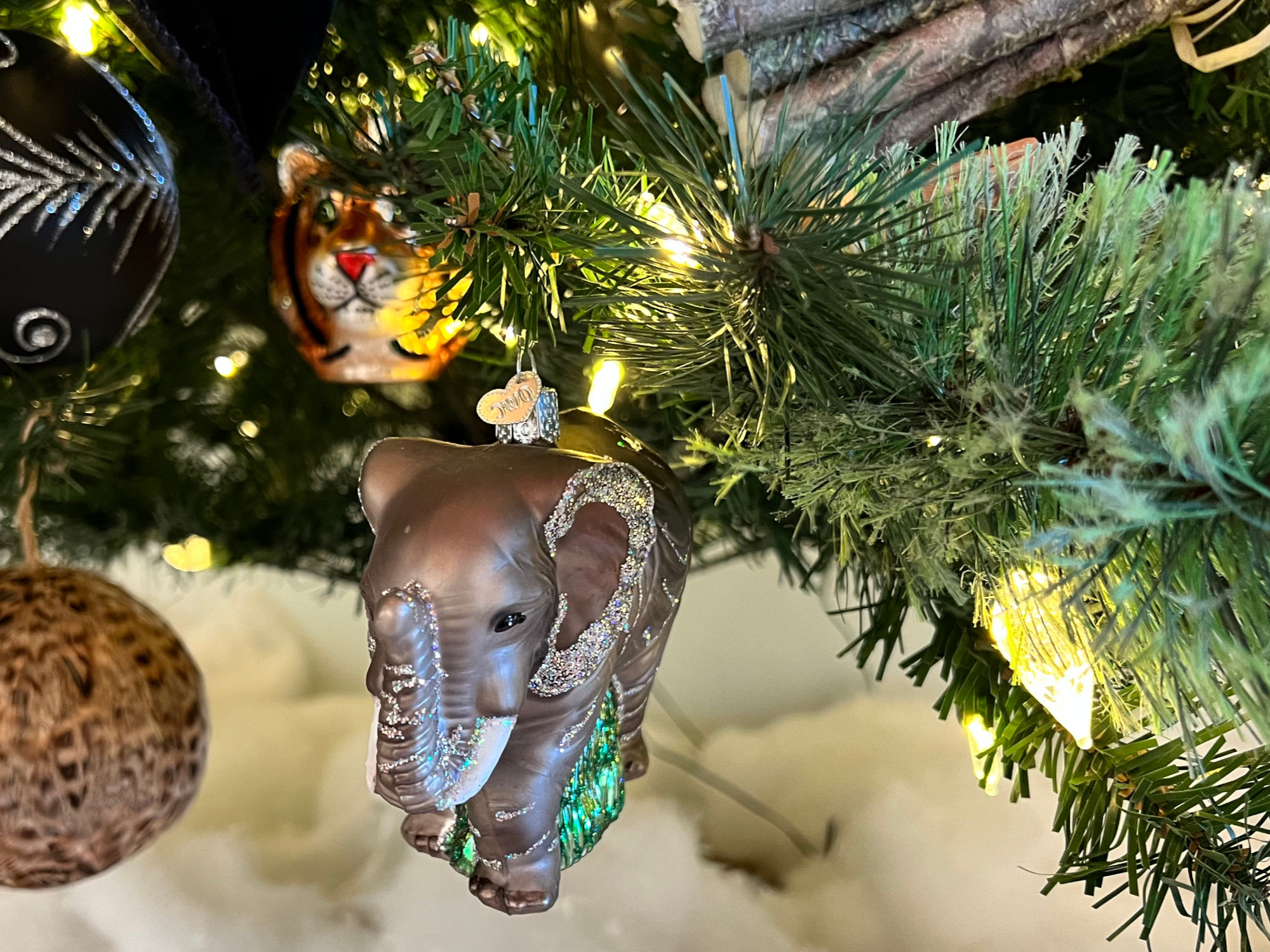
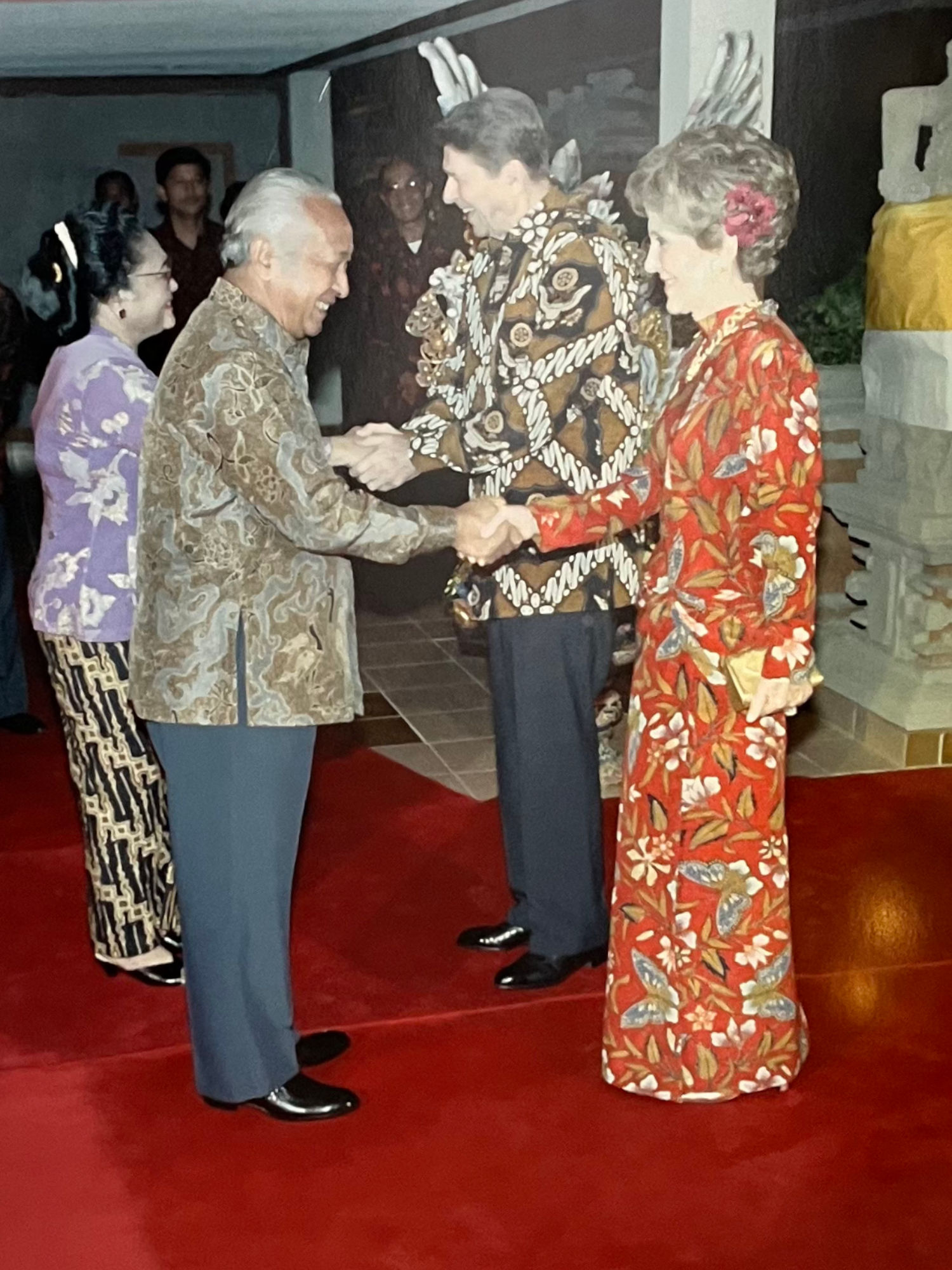
President Reagan, wearing a batik shirt with presidential seals on it, shaking hands with President Soeharto and Mrs Soeharto at a state dinner at the Putri Bali Hotel in Bali Indonesia.
Reagan's Daily DiaryThursday, May 1, 1986
This is the busy day. First a briefing then a bilateral with Pres. Soharto at the Putri Bali hotel. He’s done quite a job-ending a 600% inflation rate, making his country self sufficient in rice production. They had been Worlds largest importer of rice. He’s anti-Libya & P.L.O.The meeting was really a plenary with both our teams on hand but he took me into an adjoining room for a one on one. He told me how he had promoted a nat. language among his 165 mil. people on 13,600 islands. The islands have phone connections by way of a satellite. They were to send up a 2nd one but the Challenger tragedy has interfered with that. He was gratified by my position on protectionism. We rejoined the others for last 15 min. of meeting.
At 2:30 met with V.P. Laurell of Philippines. He brought a request from Pres. Aquino for $10 Bil. at 2 Bil. a year for 5 yrs. I told him we had a few problems of our own.
Then we joined the full meeting of the A.S.E.A.N. foreign ministers. They have done a good job of making their economies sound-G.N.P. growth has been 6.8% a year for the last several.
That night a dinner by the Sohartos,-wardrobe-Batique shirts-a gift from the Pres.
Key Facts
- President Reagan meets with President Soharo of Indonesia at the Putri Bali Hotel.
- President Reagan participates in a meeting with all foreign ministers from A.S.E.A.N.
RONALD REAGANAddress to the Ministerial Meeting of the Association of South East Asian Nations in Bali, IndonesiaMay 1, 1986
Mr. Vice President [Salvador Laurel of the Philippines], ASEAN Foreign Ministers, ladies and gentlemen, I appreciate this opportunity to discuss with you the wide range of issues that are of mutual concern to our peoples. Since coming to the Presidency, I have stressed enterprise, not redistribution, as the best means of improving the economic well-being of any country. I've emphasized the importance of free people cooperating together to meet the serious challenges that are loose in the world today. Our talks, then, have particular relevance. Since its founding in 1967, ASEAN has been a shining example of enterprise and cooperation.
It was my honor earlier to have met and conferred with President Soeharto. Our discussions were friendly and carried out with the mutual respect one would expect between the leaders of two great nations. I am confident that our discussions will be in the same spirit -- I mean our discussions here. And I'm looking forward to hearing your views.
You know, there is a story back in the United States about two men out in the woods on a hike. They saw a large bear coming over the hill, directly toward them. And one of them sat down, took off his knapsack, reached in, got out a pair of tennis shoes, and started to put them on. And the other one looked and says, "You don't think that putting on those tennis shoes -- you're going to be able to outrun that bear?" He said, "I don't have to outrun the bear; I only have to outrun you." [Laughter] Well, if there is a bear coming over the hill, unlike that hiker, the American people can be counted on to stick with our friends. We won't put on running shoes. [Laughter] Standing together, we can make certain the people of this region remain free and secure.
Today there is an ever-increasing recognition that our futures are linked in so many ways. Two ASEAN members, Thailand and the Philippines, are treaty allies. All of you are friends with whom we work closely. The United States sees ASEAN's unity and decisiveness as an example to other free people. The ASEAN collective voice of responsible international behavior has been amplified throughout the world, and I am here to listen to you. Support for and cooperation with ASEAN is a linchpin of American Pacific policy.
Nowhere has your leadership been more inspiring than in molding the world's response to the Vietnamese invasion and occupation of Cambodia. After the collapse of South Vietnam, ASEAN took a strong stand against Vietnamese expansionism. When Vietnam invaded Cambodia in 1978, you recognized the threat and acted quickly. The strength of your commitment and the direction you've provided on this vital issue have been much admired by the United States. In 1981 ASEAN organized the International Conference on Kampuchea. We continue to support the basic principles for the settlement of the Cambodian situation agreed upon at that conference: the complete withdrawal of Vietnamese forces under international supervision; the restoration of Cambodian independence, sovereignty, and territorial integrity; a Cambodian government chosen in free elections under international auspices.
ASEAN's efforts are consistent with American desires to bring peaceful resolution to the tragic cycle of events that has plagued the Cambodian people. We continue to believe a negotiated settlement with ASEAN is in Vietnam's interest and in the best interest of everyone in the region. We are prepared to participate constructively in a regional settlement and call upon Vietnam to answer your reasonable proposals for negotiations. The contrast between the economic conditions prevailing in Vietnam and ASEAN is striking. Their continued occupation of Cambodia is simply widening this gap each day. Cambodia is, of course, something we will discuss further this afternoon along with other issues of regional and global importance.
In approaching our discussions, let me just say the United States considers itself a Pacific rim country, with a heavy stake in the outcome of events in this region. The Philippines, for example, is a country with which the United States has deep and abiding ties. We hope that recent events there will increase the chances of unity through democracy and enable the Philippine people, to a greater degree, to join in the economic advances so apparent throughout the region. Before I left Washington, we announced a Philippine aid package to help our Filipino friends during this difficult period. This region's economic stature continues to grow. Collectively, ASEAN is now the United States fifth largest trading partner. Our trade with you, as with all of east Asia and the Pacific, is growing faster than with any other region of the world. When this organization was founded back in 1967, our annual trade was running at less than $2 billion. In 1985 U.S.-ASEAN trade reached $23.5 billion.
As you are all aware, there is growing pressure in many industrial countries to restrict trade. Well, I'm certain you agree that any substantial cut in the commerce between nations would be an unmitigated disaster. It's only right that we are meeting prior to the 12th economic summit in Tokyo. One of the messages I am bringing to the economic summit concerns the necessity of keeping open the avenues of world trade. This is something that the United States and ASEAN should work closely together to achieve. It is fundamental to the well-being of both our peoples. As part of my preparation for the economic summit, I'm also looking forward to hearing today your thoughts on issues that the summit conferees should keep in mind as concerns of the countries of ASEAN. We are pleased, as a Pacific rim partner, to take your ideas to the meetings in Tokyo.
Our progress has been based on freeing -- not restricting -- man's commerce, energy, and creativity. A strong commitment to the principles of freedom and independence, and a fundamental trust in free enterprise and open markets, have propelled ASEAN countries far beyond what others would have thought possible. The decision makers of your countries have proven their wisdom and good sense. But I have a favor to ask. I think the leaders of the developing world could use your advice. You know, give a man a fish and he won't be hungry today, but teach him how to fish and he'll never be hungry again. You can do a great service by telling others, especially those trying to improve their lot, how to follow the path of personal incentives to economic progress.
I would like to mention the humanitarian issue of great personal concern to me, my administration, and the American people. It is about our men still missing in action from the Vietnam war. Vietnam's recent, apparent attempt to link this last vestige of the war to other issues is a great disappointment to us. We were pleased with the evident progress over the past year. It indicated Hanoi had agreed with us that resolution of this issue was in their national interest. We appreciate all that you have done to help us on this, and we hope that Vietnam will soon resume these important talks.
In closing, I would like to say the United States is proud to be a partner with ASEAN in the quest for peace, freedom, and greater prosperity. I am looking forward to our meeting this afternoon and to the continuing close relationship between our governments and people. Thank you all, and God bless you.
NOTEThe President spoke at 3:09 p.m. in the Keraton Room at the Nusa Dua Hotel.
WIKIPEDIAThe Republic of Indonesia
A country in Southeast Asia and Oceania between the Indian and Pacific oceans. It consists of over 17,000 islands, including Sumatra, Java, Sulawesi, and parts of Borneo and New Guinea. Indonesia is the world's largest archipelagic state and the 14th-largest country by area, at 735,358 square miles. With around 279 million people, Indonesia is the world's fourth-most populous country and the most populous Muslim-majority country. Java, the world's most populous island, is home to more than half of the country's population.Indonesia is a presidential republic with an elected legislature. It has 38 provinces, of which nine have special status. The country's capital, Jakarta, is the world's second-most populous urban area. Indonesia shares land borders with Papua New Guinea, East Timor, and the eastern part of Malaysia, as well as maritime borders with Singapore, Vietnam, Thailand, the Philippines, Australia, Palau, and India. Despite its large population and densely populated regions, Indonesia has vast areas of wilderness that support one of the world's highest levels of biodiversity.
The Indonesian archipelago has been a valuable region for trade since at least the seventh century when the Srivijaya and later Majapahit Kingdoms traded with entities from mainland China and the Indian subcontinent. Local rulers gradually absorbed foreign influences from the early centuries, and Hindu and Buddhist kingdoms flourished. Muslim traders later brought Islam, and European powers fought one another to monopolize trade in the Spice Islands of Maluku during the Age of Discovery. Following three and a half centuries of Dutch colonialism, Indonesia secured its independence after World War II. Indonesia's history has since been turbulent, with challenges posed by natural disasters, corruption, separatism, a democratization process, and periods of rapid economic change.
Indonesia consists of thousands of distinct native ethnic and hundreds of linguistic groups, with Javanese being the largest. A shared identity has developed with the motto "Bhinneka Tunggal Ika" ("Unity in Diversity" literally, "many, yet one"), defined by a national language, cultural diversity, religious pluralism within a Muslim-majority population, and a history of colonialism and rebellion against it. The economy of Indonesia is the world's 16th-largest by nominal GDP and the 7th-largest by PPP. It is the world's third-largest democracy, a regional power and is considered a middle power in global affairs. The country is a member of several multilateral organizations, including the United Nations, World Trade Organization, G20, and a founding member of the Non-Aligned Movement, Association of Southeast Asian Nations, East Asia Summit, D-8 and the Organization of Islamic Cooperation.
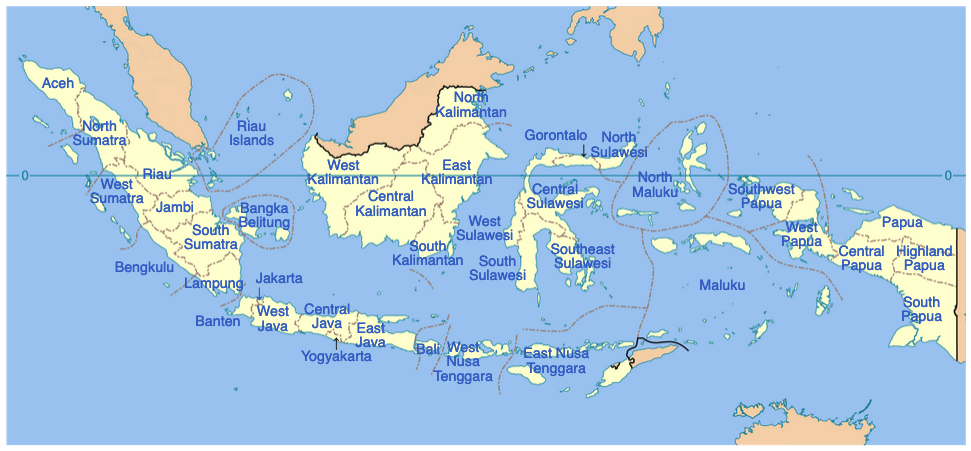
- A total of 38 provinces have been established from the original eight in 1945
- A transcontinental country spanning Southeast Asia and Oceania, it is the world's largest archipelagic state, extending 3,181 miles from east to west and 1,094 miles from north to south.
- Indonesia's size, tropical climate, and archipelagic geography support one of the world's highest levels of biodiversity, and it is among the 17 megadiverse countries identified by Conservation International. Its flora and fauna are a mixture of Asian and Australasian species. Indonesia is one of the Coral Triangle countries with the world's most enormous diversity of coral reef fish, with more than 1,650 species in eastern Indonesia only.
- Indonesia has one of the world's fastest deforestation rates. In 2020, forests covered approximately 49.1% of the country's land area, down from 87% in 1950. Since the 1970s, log production, various plantations and agriculture have been responsible for much of the deforestation in Indonesia.
- Per a 2023 estimate, it is the world's 16th largest economy by nominal GDP and 7th in terms of GDP at PPP. Services are the economy's largest sector and account for 43.4% of GDP (2018), followed by industry (39.7%) and agriculture (12.8%).
- Indonesia has abundant natural resources. Its primary industries are fishing, petroleum, timber, paper products, cotton cloth, tourism, petroleum mining, natural gas, bauxite, coal and tin. Its main agricultural products are rice, coconuts, soybeans, bananas, coffee, tea, palm, rubber, and sugar cane. Indonesia is the world's largest producer of palm oil.
- Tourism contributed around US $9.8 billion to GDP in 2020, and in the previous year, Indonesia received 15.4 million visitors. Overall, China, Singapore, Malaysia, Australia, and Japan are the top five sources of visitors to Indonesia.
- The 2020 census recorded Indonesia's population as 270.2 million, the fourth largest in the world. Java is the world's most populous island, where 56% of the country's population lives. The country currently possesses a relatively young population, with a median age of 30.2 years (2017 estimate).
- Indonesia is an ethnically diverse country, with around 1,300 distinct native ethnic groups. Most Indonesians are descended from Austronesian peoples whose languages had origins in Proto-Austronesian, which possibly originated in what is now Taiwan. Another major grouping is the Melanesians, who inhabit eastern Indonesia (the Maluku Islands, Western New Guinea and the eastern part of the Lesser Sunda Islands). The Javanese are the largest ethnic group, constituting 40.2% of the population, and are politically dominant.
- The country's official language is Indonesian.
- With 231 million adherents (86.7%) in 2018, Indonesia is the world's most populous Muslim-majority country, with Sunnis being the majority (99%). The Shias and Ahmadis, respectively, constitute 1% (1–3 million) and 0.2% (200,000–400,000) of Muslims. About 10% of Indonesians are Christians, who form the majority in several provinces in eastern Indonesia. Most Hindus are Balinese, and most Buddhists are Chinese Indonesians.
- Indonesian cuisine is one of the world's most diverse, vibrant, and colourful, full of intense flavour. Many regional cuisines exist, often based upon indigenous culture and foreign influences such as Chinese, European, Middle Eastern, and Indian precedents. Rice is the leading staple food and is served with side dishes of meat and vegetables. Spices (notably chilli), coconut milk, fish and chicken are fundamental ingredients.
- Badminton and football are the most popular sports in Indonesia. Indonesia is among the few countries that have won the Thomas and Uber Cup, the world team championship of men's and women's badminton. Other popular sports include boxing and basketball, which has a long history in Indonesia.
EtymologyThe name Indonesia derives from the Greek words Indos and nesos, meaning "Indian islands". The name dates back to the 19th century, far predating the formation of independent Indonesia.


